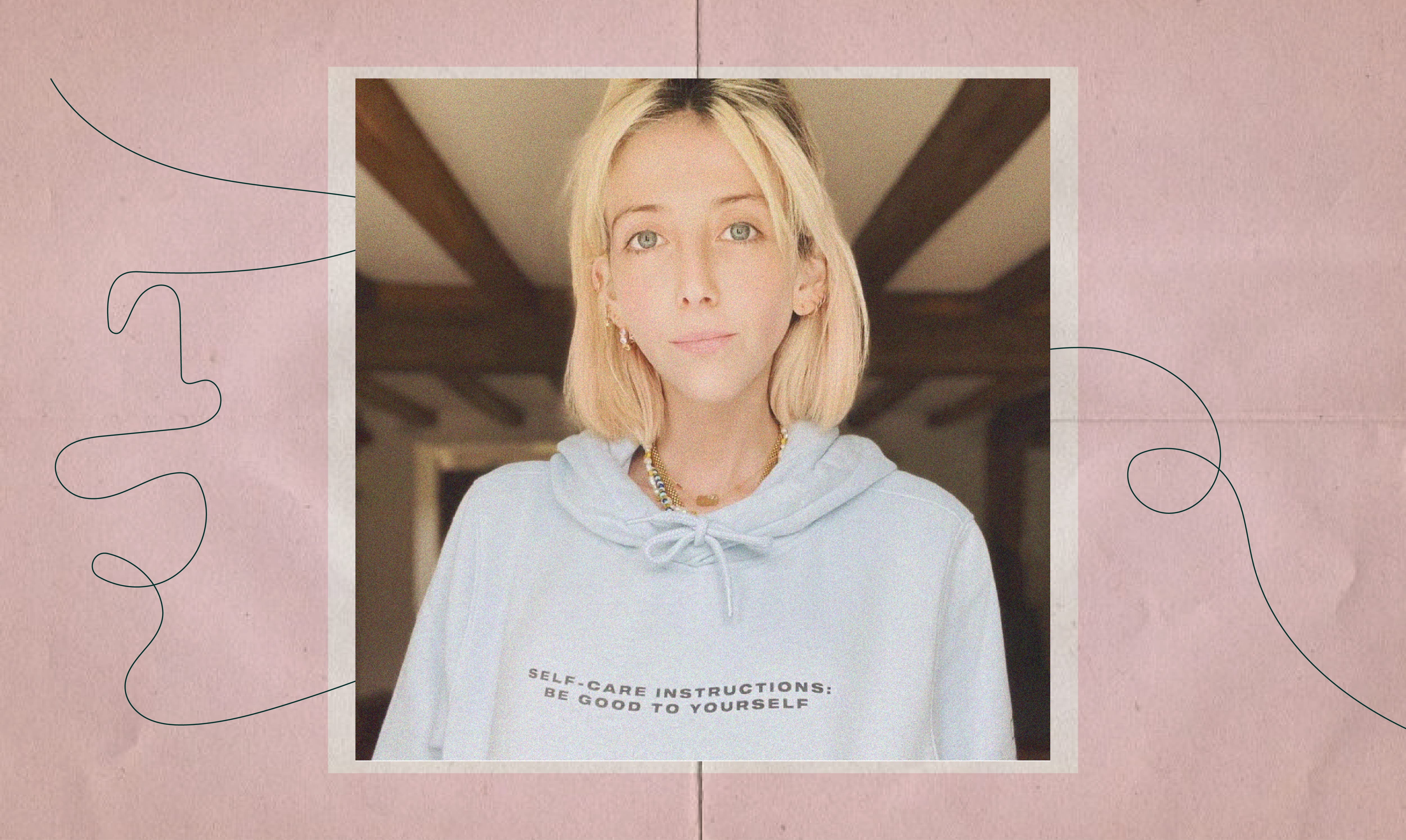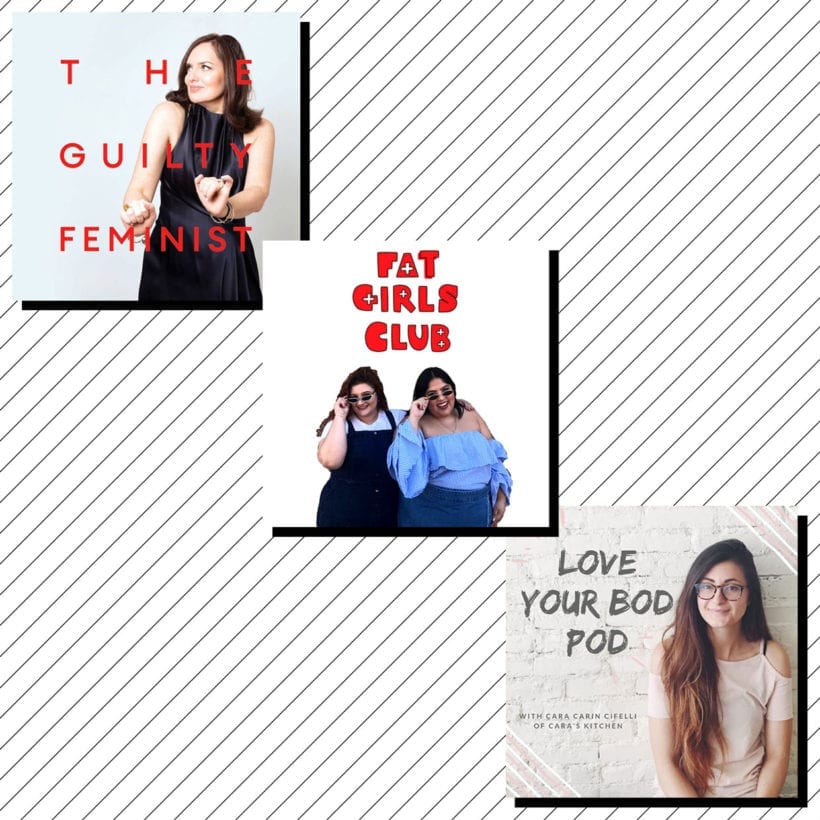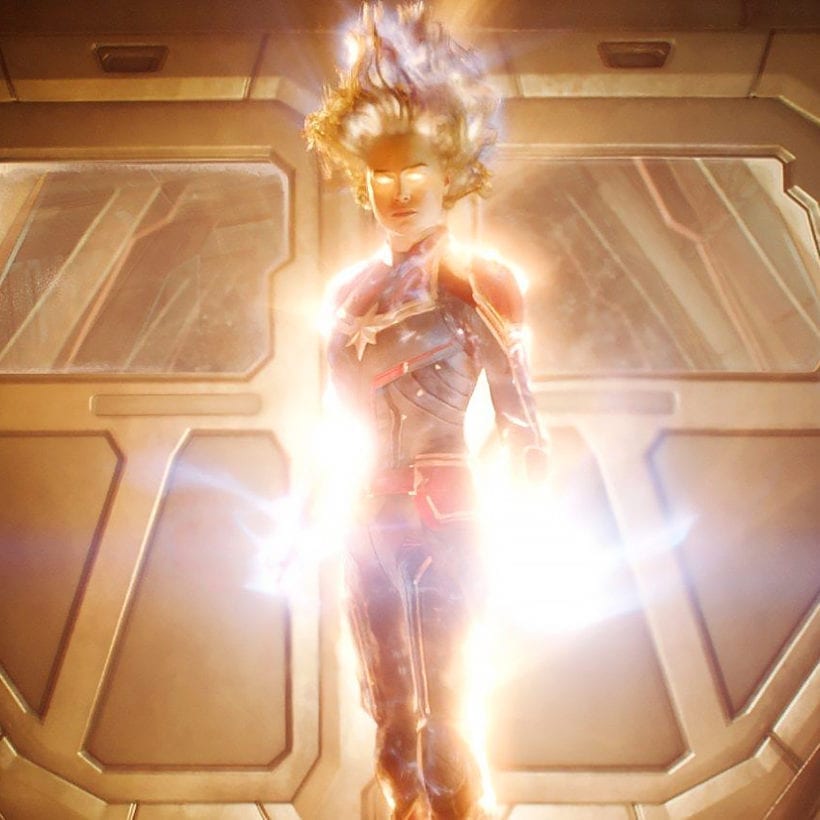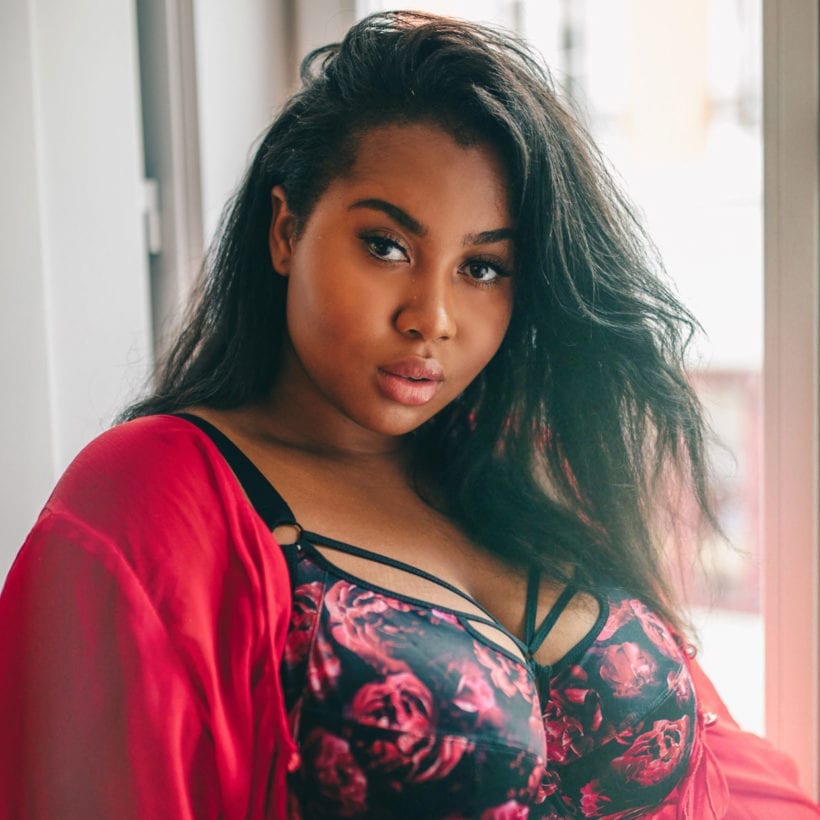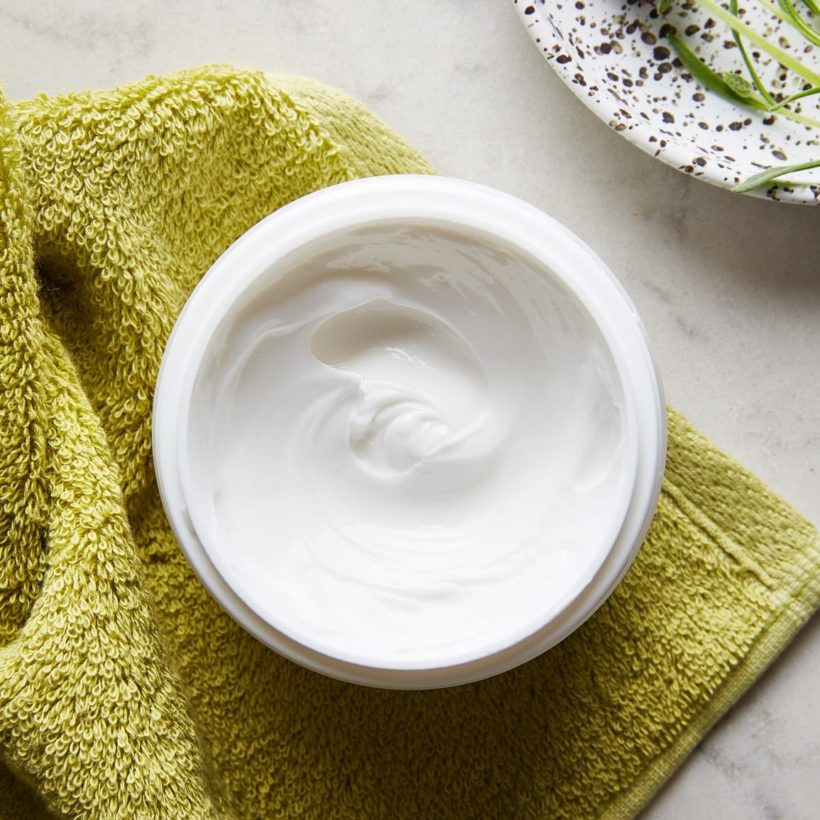We couldn’t think of a better way to ring in International Women’s Day this year (officially on March 8th) than sitting down with feminist activist and writer Scarlett Curtis who has made a career out of championing women. She curated the award-winning book Feminists Don’t Wear Pink & other lies, a collection of essays on the meaning of feminism, as well as co-founded The Pink Protest, a community for activism and home of the #freeperiods movement — all before the age of 25. Curtis shares with us how her view of feminism has evolved over the years, her best advice on raising your own voice, and how social media is helping the movement.
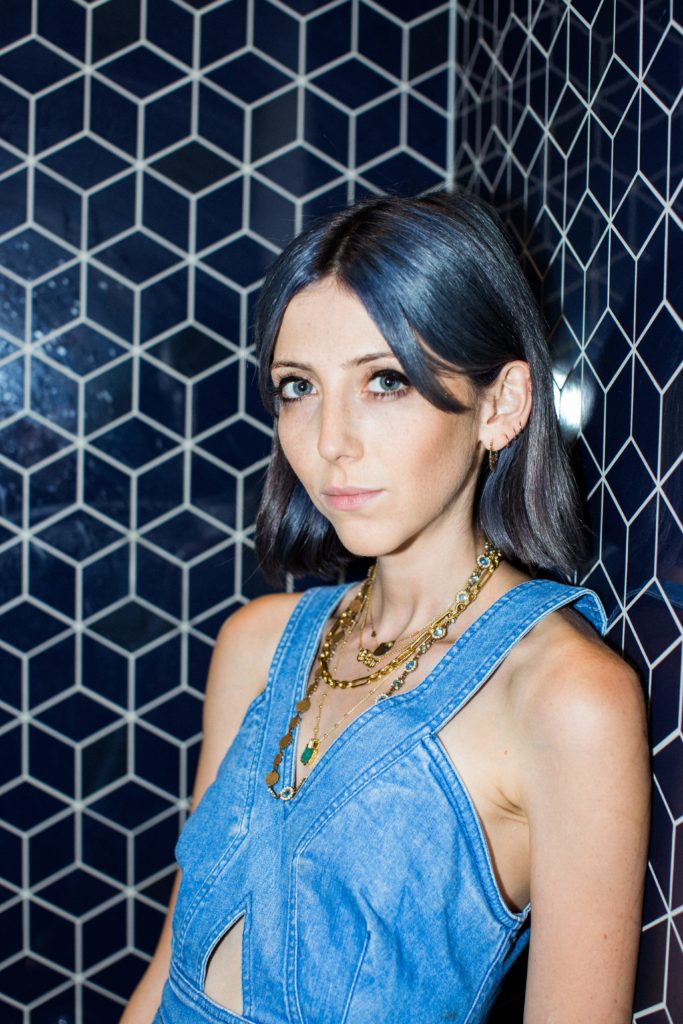
Sunday Edit: You’re as multi-hyphenate as they get. How do you describe to others what you do?
Scarlett Curtis: I definitely think of myself primarily as a writer. I started off in journalism. From when I was really young I wasn’t in school, so I was doing a lot of blogging and magazine [writing]. And now, I like to mix my writing with activism and community work and talking about issues that mean something to me. My hope is that my writing — and particularly with both of my books — appeal to young people as an entry point to get into different causes and make it feel like making positive change for the world isn’t that hard.
SE: International Women’s Day is coming up on March 8. Obviously, things will look different this year. How did you celebrate in the past and how is it going to be different this year?
SC: I used to call it “Fashion Week for Feminists” because for the last few years it would be my busiest time of the year with many amazing events. So, it does feel really weird this year not doing that. International Women’s Day last year was the last week I was doing things [in person] before lockdown. Last year, I was judging the Women’s Prize for Fiction. It’s a book prize that gives an award to the best fiction book and I had read 100 books in the span of six months. I’ve also always done quite a lot for the Women of the World festival, which highlights women’s voices at all different levels. After that event, everything was on Zoom and it felt very surreal and really sad.
There’s a special kind of magic that happens when women [physically] get into a room together and talk about feminist issues and I think it’s something really hard to replicate virtually. There’s something about that intimacy. When you think about the early stages of the women’s movement, so much of it was about women in rooms and feeling that energy and bouncing ideas off each other. My entryway into feminism was when I was living in New York and I started going to these community team meetings. We would all be shoved in someone’s basement in Harlem and drinking stale coffee and talking about feminism. There’s nothing like that physical connection. It’s sad for me not to be able to see people in person.
SE: In the States, we have our first female, Black Vice President. Do you think International Women’s Day this year has a new meaning?
SC: I think so. I was in New York until 2018 and one of the reasons I left was because of the [2016] election. The country as a whole has healing to do. The feminist movement is in much a stronger place than it was a few years ago. There’s so much incredible activism happening and amazing voices being lifted up and revealed. But, I don’t think there’s enough support for women at this moment particularly in light of the pandemic. The pandemic’s been tough on so many women, particularly mothers. We’re seeing mothers dropping out of the workforce at a pace that no one’s ever seen before. So much of the burden of family care is going on women.
It’s probably going to take until we’re through the pandemic for people to be able to evaluate that and see how we begin to heal from that. Another reason I’ve moved back home with my family is that I have three younger brothers and my dad works full-time. My mom suddenly had to be homeschooling and looking after them, cooking, and cleaning. It’s been fascinating that no matter how progressive we think we are, as soon as the pandemic started it was me and my mom cleaning. It was me and my mom cooking. It was me and my mom looking after my brothers. It just ends up falling that way. It’s going to take we’re out of this pandemic to truly see what’s happened. There’s a lot of work that’s to come.
SE: Is there a bright side to the pandemic in shedding light on these inequalities?
SC: I have this friend named Anna, and her blog name is Mother Pukka. She had gotten fired from one of her jobs because she wanted to leave five minutes early to pick up her son from school. She’s been doing a campaign for years on flexible work for women. I think the pandemic will push us to acknowledge these workplace inequalities more and how the workplace is set up for men. I feel a similar way about mental illness. I’ve been campaigning around mental illness for so long and it’s something really hard to get the government to take seriously and put money towards. I think, unfortunately, this pandemic has led a lot of people to experience mental illness for the first time or their mental illness has worsened. I hope that when we come out of this, it might be taken more seriously. We’re not going to be able to look away from it.
SE: How did you first realize you were a feminist? Did your family raise you with feminist beliefs?
SC: I don’t think feminism was something my mom ever talked to me about. I think my mom grew up at a time where — she was working in the 80s and 90s — and there was the idea that feminism wasn’t needed anymore and it was all sorted and we had Sex in the City so it was fine. When I was a teenager though, I was out of school and I got very obsessed with reading feminist books. It was something that I was doing on my own. I read different blogs and found people who felt the way that I did. I didn’t even know that there were any other feminists out there. I thought it was just me and the people that I was reading about in these books. When I moved to New York and found all these incredible grassroots groups, it was that magical moment where I discovered my feminist community.
SE: What were those first books that piqued your interest in feminism?
SC: I read — and I’m still very much obsessed with — Virginia Woolfe. I read A Room of One’s Own. It blew my mind. Then, I started to read Gloria Steinem’s My Life on the Road, which is an amazing book about life as a feminist. It became a chain: From Gloria Steinem, I found Audre Lourd and from Audre Lourde I found Kimberlé Crenshaw. I still think feminist books are one of the most magical ways you can discover the movement. There’s something about it that feels like a woman whispering her secrets in your ear. It’s like you discovered this secret diary. For me, it was reading these things that I had felt and experiences that I’ve been through that I never knew how to frame in my head as sexism or oppression or something to do with the patriarchy. Reading these books was like suddenly having glasses on: I could see everything clearly. A part of reading these books was that I was trying to read words of self-help. I started reading about yoga and meditation and none of it was really helping. Then I found these books about feminism and I was like, “this is my self-help.” This is helping more than any breathing guide because it was making sense of my experiences in an amazing way.
SE: You have this quote on your Instagram about feminism being a verb instead of a noun. This year’s International Women’s Day theme is #choosetochallenge. What are your ideas on ways people can continue to make feminism an act of challenging the status quo in big or small ways?
SC: There are tiny things we can do every day that are feminist actions. You can support a woman in your life by checking in with her, or if you have any spare change, donate to a charity or an organization. When you’re voting for political candidates, do your research and see who has better policies relating to women and try to put support behind them whether it’s writing letters, donating money, or both. It can seem very overwhelming to do the bigger stuff. My advice is to get involved with another person or a group who’s doing that work. I think sometimes we can feel the pressure to start something ourselves or change something on our own. All progress for women in the history of the world has happened through networks of people. So, I would say, if you’re in school or work, find a group of people where you can start putting together an argument of putting your workplace or school or wherever it is more gender-equal.
SE: How do you think your definition of feminism has changed over the years?
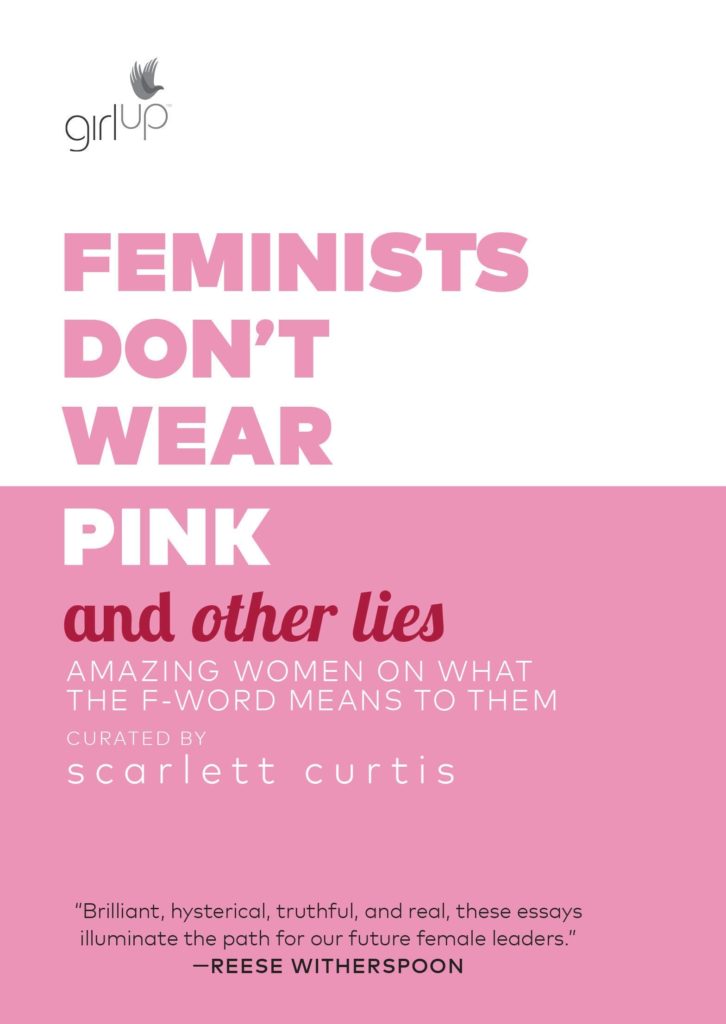
SC: For a lot of women who first get involved with feminism, it’s quite a personal thing. You’re thinking of your own experiences and your own life. I’m a white woman from England and all my thinking has been around people who have looked like me.
A huge part of my time in New York is when I got very involved with a Black Lives Matter chapter and met a lot of women who taught me to look beyond my own identity. Not only that but to prioritize women that were more oppressed than I was. Because if you start from the top and hope that trickles down, it often doesn’t. But if you start your liberation from a bottom-up mechanism, it’s the only way we can really do it. I haven’t really said this before, but feminism has also been knowing when my voice isn’t necessary and when other voices can do a better job. Curating Feminists Don’t Wear Pink was a huge part of that.
SE: What’s the biggest misconception about feminism?
SC: That men can’t be a part of it. We are seeing that not many men are comfortable in this space. Also, for a long time, I think there was this idea that a feminist was a type of woman. It was like you couldn’t care about feminism as well as fashion or makeup or beauty. You never think about it that way for Democrats and Republicans. It’s so odd that we prescribe this stereotype, but I do think it’s changing. Additionally, we’re still at a point where a lot of the lead figures that are speaking about feminism are white women and that can sometimes create a misconception of who the movement is for.
SE: Can you think of any men that are doing a good job supporting feminism?
SC: I see it a lot with the younger generation of men. I see it with my brothers who are teenagers — perhaps because I’ve rammed feminism down their throats. But it makes me hopeful things are changing.
SE: Can men benefit from feminism?
SC: I have a catchphrase: Women can perpetuate the patriarchy just as much as men and men can be victims to the patriarchy just as much as women. I see this especially as I work both in the feminist space and the mental health space. Within the mental health space, you see all the time how many men have been driven to such unhappiness through the patriarchy through thinking they have to be a “man” and aren’t allowed to talk about their feelings. They had to be “strong” and the breadwinner. All of these expectations that we have of men are things that feminism is trying to dismantle. They actually hurt men so much. I’ve seen the way my brothers have been forced on this image of how men should be. If the feminist movement is doing its job, it should be breaking down those expectations for men just as much as it lets women into that space.
SE: In your book, you reference feeling a sense of imposter syndrome. Why do you think some women feel this way and how can we change that mindset?
SC: A huge part of it has to do with misrepresentation. White men grow up seeing people like them in positions of power and being respected. They expect that’s where they’re heading. So many women, especially women of color, don’t see themselves represented in positions of power or authority and people speaking up. There’s that cliché phrase that “you can’t be what you can’t see.” Often when you don’t have those role models and you haven’t seen society accepting someone that looks like you or sounds like you, you’re going to feel much more terrified of not feeling accepted in that way.
SE: How do you stay motivated when you see resistance to feminism?
SC: Sometimes logging off can really help. I’ve seen a lot of activists go really hard at something they feel passionately about and get completely beaten down by online trolling, things not going the way they planned, or just burnout. Then they have to stop doing the work. Sometimes stepping away helps you protect yourself. Surround yourself with people that inspire you and make you happy. I only follow amazing feminist illustrators and activists and hairless cats on social media. We all hear enough about the bad stuff.
SR: Speaking of social media, you have nearly 100K followers on Instagram. Do you think social media helped or hurt the feminist movement?
SC: I’m very pro-social media in a lot of ways. I was very isolated when I was young and social media was such a big part of how I get my education, my friends, and my communication. I don’t think Black Lives Matter would’ve happened in the same way this year without the powers of social media. Even in my own activism, we did a whole campaign on Period Poverty in the UK and that was solely done on social media. It ended up in a big protest and a change in the law.
SE: What’s been the most challenging for you the past year?
SC: It’s all been very challenging, hasn’t it? I found it harder than I thought it would. I’ve been feeling disconnected from friends and everything that makes me, me. It’s made me miss the world and real life. I do struggle a lot with my mental and health and we’ve all had our normal coping mechanisms taken away.
SE: There’s hopefully a light at the end of this long tunnel. What are your creative plans for this year?
SC: I’m working on a few different writing projects that I’m really enjoying because they feel possible, even though so much is impossible right now. I’ve been going very hard for the past few years and I’ve mostly enjoyed taking a step back. To be totally honest, my mental health has been very up and down, so that’s definitely slowed me down. When I’m being hard on myself about not being productive enough, I remind myself that we’re going to look back and be like “how did we even get out of bed?” let alone write that great novel. I don’t know what Taylor Swift’s doing but she seems to be living a different pandemic than the rest of us. I’m trying not to put this pressure on myself. We should just be taking care of ourselves as much as we can.
We only recommend products we have independently researched, tested, and loved. If you purchase a product found through our links, Sunday Edit may earn an affiliate commission.
